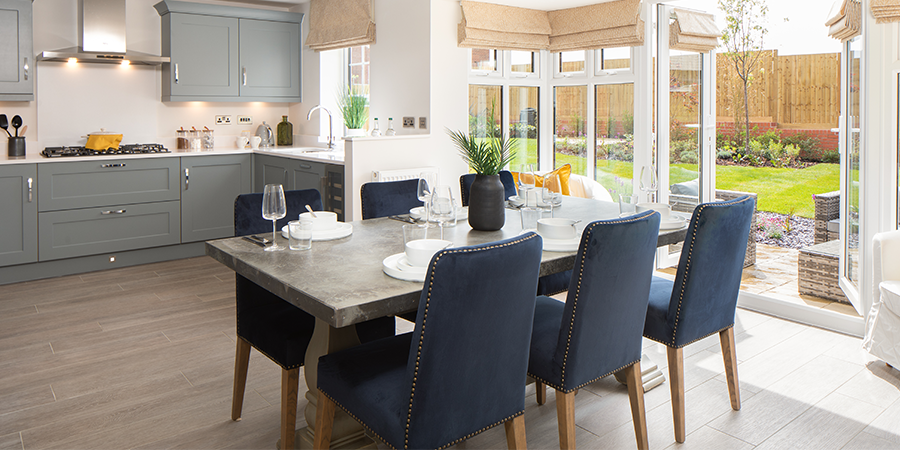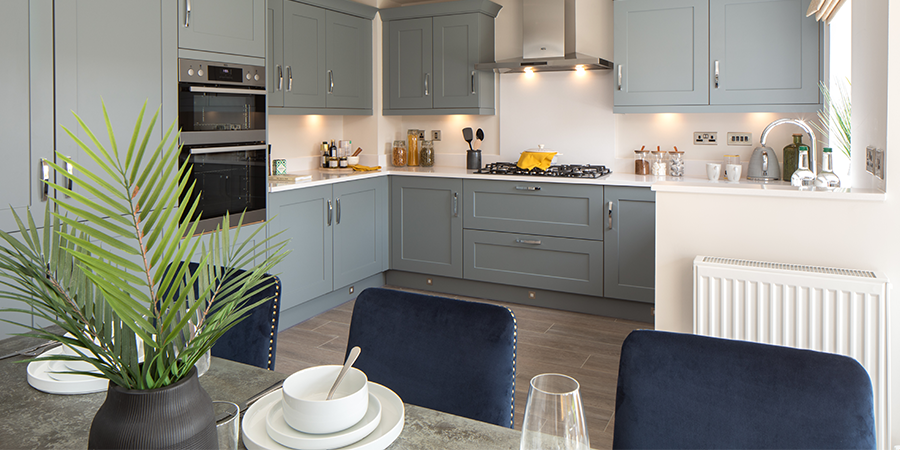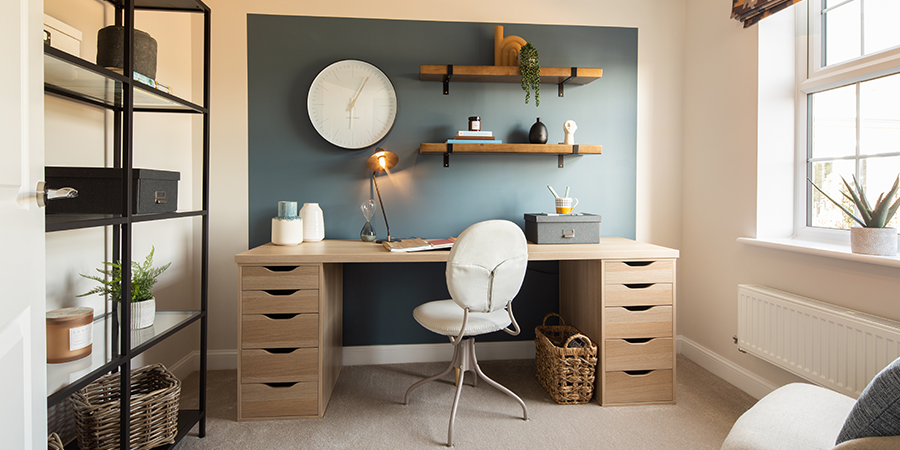
Take a good look at your credit history
When you apply for a mortgage, the first thing your potential lender will do is carry out some background checks. They’ll calculate a credit score for you based on your credit history. If you have a poor one, your application could be automatically rejected. So it pays to review your history and make it the best it can be.
Viewing your credit history is pretty straightforward. You can do it for free on the websites of three well-known credit reference agencies: Equifax, Experian and ClearScore. It’s a good idea to check all three as the information they hold can be different, and you also won’t know which one your mortgage provider will use.
Look out for any mistakes on your records and talk to the credit agency about putting them right. Your records will show any financial products you currently have and how much credit you have available.
Any payments you’ve missed in the past will also be flagged up, as they stay on your record for seven years. However, you can add notes to your record to explain why you missed a payment – such as redundancy, a period of ill health, or having to stop work to care for a relative.
If your credit rating is lower than you expected, it could be that you’re financially linked to someone with a bad credit history. That could be anyone you’ve shared a financial product with in the past, such as a former housemate who covered the cost of a utility bill with you, or an ex-partner you once rented a home with. To sort this out, you can apply for something called a Notice of Disassociation by contacting the credit reference agencies.

Build up a sizeable deposit and enough money for additional mortgage costs
Being able to put down a good deposit will increase your chances of getting a mortgage and a better deal.
If you have a large deposit, you’ll be seen as less of a risk by a mortgage provider as the loan-to-value (LTV) will be lower. LTV is the difference between the purchase price of a property and the size of your deposit. If you’re buying a £200,000 property and have a small deposit of £10,000, that’s equal to 5% of the property’s value. Your mortgage would make up the rest, meaning your LTV would be 95%.
The more savings you have will also help you cover the various mortgage costs you’ll need to pay.
If you have a low deposit, we have some offers that could help you make your move.

Register to vote
Not being on the electoral register makes it harder to get a mortgage, so you should make sure you’re on it as soon as possible. According to Experian, simply being on it will increase your credit score by 50 points1.
In addition to improving your chances of getting a mortgage, it also gives you right to vote in elections and referendums. It’s a straightforward process and you can do it all online at the gov.uk website.

Don't apply for other forms of credit
In the six months or so before you apply for a mortgage, it’s best to avoid getting any other form of credit, such as a car loan, credit card, mobile phone contract or personal loan. This will instantly show on your credit history and you don’t want to look like you’re desperate for credit. Don’t forget that you can’t use any form of credit to pay for your deposit. If you try to, your mortgage provider may decline your application – even at the very last moment.
Try to reduce your spending and pay off any debts
When you apply for a mortgage, your lender will usually look at your latest three bank statements as part of their affordability checks. So in the run-up to applying, it’s a good idea to reduce your spending as much as you can and avoid making use of your overdraft, if possible. Remember, your potential mortgage provider will assess how much they might lend you based on what they think you can realistically afford.If you have debts on items such as credit cards or loans, you should be doing all you can to pay them off – or at least substantially reduce them. It’s better to hold off applying for a mortgage until you’ve done this.

Don’t change jobs
If you’re thinking of leaving your current employment, try not to do this until you’ve arranged your mortgage and moved into your new home.
If you change jobs and are on a probationary period, this will undermine your chances of getting a mortgage as you may struggle to find a provider.
Close any old bank accounts
It’s easy to forget about old bank accounts and simply leave them open. But if you haven’t used one for a while, it might be worth closing it down. Keeping it active could present a fraud risk and it might display out-of-date details.
Having said that, mortgage lenders value long-term and stable credit relationships. So for example, if you have two credit cards (one recent and one old) it might be best to keep the older one open until you’ve completed your mortgage application, as it could give your credit score a boost.
Talking of credit scores, it’s worth noting that you don’t just have one universal figure. Each lender will work out a score for you, and they all have their own way of calculating it.
Pay all your bills on time
Mortgage providers need to be able to see that you’re good at managing money. So bills (even small ones) need to be paid on time.
Any missed payment will count against you on your credit file for at least a year and will actually stay on your records for six. So even missing just one outgoing, like a mobile phone payment, could be the difference between getting a mortgage or not. The best way to avoid missing any payments is to set up a Direct Debit, so you don’t have to worry about arranging everything each and every month.
One last thing: making just the minimum payment each month on a bill is a big no-no, as it will ring alarm bells with most mortgage providers.

Take the time to complete your mortgage application correctly
When it comes to filling out the mortgage application and paperwork, you can’t rush it.
Mistakes can cause delays, so be careful. For instance, when it asks for your income you need to state the exact amount. Don’t be tempted to round it up or, worse still, guess. You also need to be honest about your finances. So don’t try to hide debts or pretend that you don’t pay for things like childcare if you do.
You may not feel 100% confident about completing the application on your own. If so, you can ask a mortgage advisor to help you through and check that everything is correct.
If a mortgage provider rejects your application you’re free to apply elsewhere – just don’t make lots of applications all at once. This will show up on your credit history and won’t be looked on favourably by other mortgage providers.
Prepare the documents you need for your mortgage application
Getting together the documents you’ll need to support your mortgage application will help you make the process as stress-free as possible. Your mortgage lender may need to see some or all of the following:
- Bank statements for the last three months
- Payslips for the last three months
- Proof of any bonuses or commission you might have earned
- Your latest P60 form showing income earned and the tax you’ve paid
- Your accounts or tax returns for the last three years
- Proof that you have a deposit ready, such as a savings account statement
- A form of ID, usually a passport
- Proof of address, such as a current utility or credit card bill
To learn more about what documents are needed for purchasing a house, read our essential house purchase documents guide.

Helping you every step of the way
Understanding what’s involved and having useful information at your fingertips will definitely improve your chances of getting a mortgage. So take a look at Our 10 tips to ensure you stay mortgage ready.
And because securing a mortgage is just one step in the home buying process, we’ve also drawn together lots of other handy information.
1 Average credit score in the UK in October 2022, Help & Advice, October 2022.
This guide to saving for a mortgage was produced in collaboration with L&C, the UK’s leading fee-free mortgage experts.



